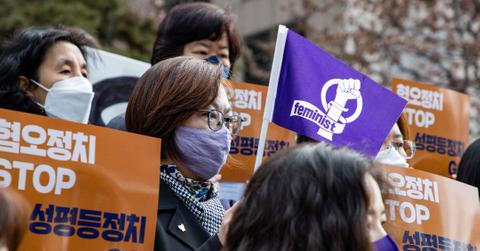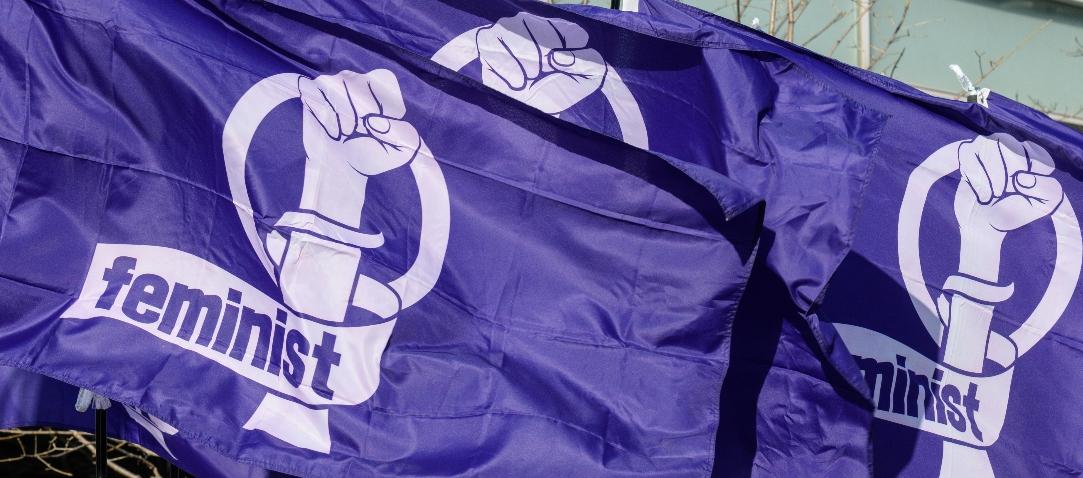South Korea's 4B Movement Is Encouraging Women to Say No to Dating, Marriage, and Having Kids
"It's so successful in fact that now South Korea has one of the lowest birth rates in the world," TikToker @wtfaleisa.
Published April 3 2024, 9:24 p.m. ET

A new wave of feminism has taken the digital world by storm, particularly on TikTok, sparking curiosity and widespread discussion.
What is the 4B movement on TikTok? This movement, originating in South Korea, has not only garnered attention for its bold stance on women's rights but has also seen its influence spread globally, amassing millions of views across various content related to the movement.
The 4B Movement, as it is known, represents a radical shift in how women choose to navigate societal norms and expectations.
With its principles challenging traditional roles through the advocacy of no marriage, no childbirth, no dating, and no sex, the movement has become a beacon of empowerment and autonomy for women worldwide.
The 4B movement is a radical feminist ideology.

Korean women hold flags saying "Feminist" as they march during a rally
The 4B movement, a term that has become synonymous with a radical feminist ideology and lifestyle in South Korea, represents a profound societal shift and a direct challenge to traditional norms.
Originating in 2019, the movement is defined by its four foundational principles, each beginning with the Korean word "bi-" which translates to "no": Bihon (no to heterosexual marriage), Bichulsan (no to childbirth), Biyeonae (no to dating), and Bisekseu (no to sex), per The Cut.
The 4B movement's emergence and rapid growth can be attributed to a broader context of frustration among South Korean women towards a culture that imposes rigid expectations on their roles within society.
As noted by The Cut, "An ideological stance and lifestyle, 4B stands for 4 words that start with bi-, or 'no': bihon is refusing heterosexual marriage."
The movement has been instrumental in highlighting and protesting against South Korea's pro-natalist policies, which have been criticized for failing to address the underlying issues that deter women from choosing to marry or have children, such as gender inequality, lack of support for working mothers, and high childcare costs.
The 4B movement, therefore, encompasses "not only criticisms of the pro-natalist turn in state policy and protests against it but also various forms of self-help", per Yonsei.
The anticipated impact of the 4B movement.
Critics and supporters alike have engaged in vigorous debates over the implications of the 4B movement, with some seeing it as a necessary response to a patriarchal and misogynistic culture.
A user on Reddit's r/AskFeminists thread remarked, "4B is the rational response. These women will be happier, more successful, and safer without men".
The 4B movement is more than just a series of rejections; it's a call for societal transformation, advocating for a woman's right to live independently and make choices free from societal coercion.
It's a reflection of a generation of South Korean women who are boldly demanding respect for their autonomy and challenging the status quo.
As the movement continues to evolve, it remains a significant force for feminist discourse and action in South Korea and beyond.
Is the United States next?